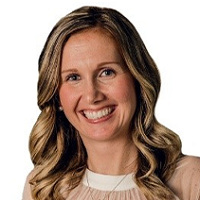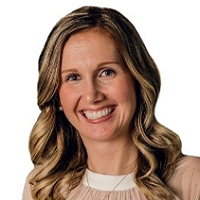Are You Investing Like It's the 1950s?
Make sure your portfolio's design is truly 'modern,' because the stock market is a completely different world than it was in the '50s.


Profit and prosper with the best of Kiplinger's advice on investing, taxes, retirement, personal finance and much more. Delivered daily. Enter your email in the box and click Sign Me Up.
You are now subscribed
Your newsletter sign-up was successful
Want to add more newsletters?

Delivered daily
Kiplinger Today
Profit and prosper with the best of Kiplinger's advice on investing, taxes, retirement, personal finance and much more delivered daily. Smart money moves start here.

Sent five days a week
Kiplinger A Step Ahead
Get practical help to make better financial decisions in your everyday life, from spending to savings on top deals.

Delivered daily
Kiplinger Closing Bell
Get today's biggest financial and investing headlines delivered to your inbox every day the U.S. stock market is open.

Sent twice a week
Kiplinger Adviser Intel
Financial pros across the country share best practices and fresh tactics to preserve and grow your wealth.

Delivered weekly
Kiplinger Tax Tips
Trim your federal and state tax bills with practical tax-planning and tax-cutting strategies.

Sent twice a week
Kiplinger Retirement Tips
Your twice-a-week guide to planning and enjoying a financially secure and richly rewarding retirement

Sent bimonthly.
Kiplinger Adviser Angle
Insights for advisers, wealth managers and other financial professionals.

Sent twice a week
Kiplinger Investing Weekly
Your twice-a-week roundup of promising stocks, funds, companies and industries you should consider, ones you should avoid, and why.

Sent weekly for six weeks
Kiplinger Invest for Retirement
Your step-by-step six-part series on how to invest for retirement, from devising a successful strategy to exactly which investments to choose.
Most investment professionals will tell you that, although it doesn’t guarantee against loss, diversification is a critical part of reaching your long-range financial goals.
What they all might not agree on, though, is what diversification really means.
The people who come to our office for help think they’re diversified. After all, they have stocks and bonds and mutual funds in their portfolios. They have large caps and small caps, and maybe even something invested in emerging markets or a variable annuity.
From just $107.88 $24.99 for Kiplinger Personal Finance
Become a smarter, better informed investor. Subscribe from just $107.88 $24.99, plus get up to 4 Special Issues

Sign up for Kiplinger’s Free Newsletters
Profit and prosper with the best of expert advice on investing, taxes, retirement, personal finance and more - straight to your e-mail.
Profit and prosper with the best of expert advice - straight to your e-mail.
In my view, though, that isn’t diversification. Those investments are still all directly correlated to the market.
Think about it: In 2000 and 2008, it didn’t matter what mix you had, if your investments were tied to the market, you lost money. A lot of money.
That old diversification model – where stocks were your risky asset and bonds were supposed to be safer – is based on something called “Modern Portfolio Theory,” developed in 1952. Which means it’s not so modern anymore.
One thing I ask everyone who comes to our workshops is:
“If you went to a cardiologist who said you needed heart surgery, and they were going to do it the same way they did it in the 1950s, what would you do?”
Most people say they would run out the door and get a second opinion.
Unfortunately, the vast majority of the people we’re meeting with are still investing their money the same way it was done in the ’50s, ’60s and ’70s. And we’re in a much different market today than we were then, thanks to the Internet. We’re moving massive amounts of money every day, every hour. The market moves faster — and it’s more volatile. A news item, even a rumor, can have a same-day effect – good or bad.
And yet, only a small percentage of the businesses in the U.S. economy are publicly traded. According to a 2016 note from JPMorgan Asset Management, the number of publicly listed companies is down by almost half from its peak of 8,025 in 1996. That means there are a lot of private companies out there you can’t buy stock in. (Uber and Ikea, for example.)
That’s a huge thing for people to grasp – that all their hard-earned retirement dollars are invested in a very small segment of our economy. They think because they have mutual funds they have their bases covered. (Even if they don’t really know what’s in those funds.)
Some more history: It used to be, way back when, mutual fund companies didn’t exist in the United States. Most people had savings accounts, because securities were just too expensive for the average person. Then Massachusetts Investors Trust was incorporated in 1924, attracting investors who liked the idea of pooling their money with others to get in on what Wall Street had going.
After the market crashed in 1929, government and industry leaders came up with regulatory safeguards to restore investor confidence, which resulted in the Investment Company Act of 1940, requiring companies to make regular reports to shareholders about a fund's financial status, portfolio holdings and compensation.
But there are still hidden fees in mutual funds that people tell us they weren’t aware of. They may know the expense ratio, which the fund reports, but not the other fees and transaction costs that sometimes make funds twice as expensive as they thought. Not to mention that mutual funds are sometimes tax inefficient: If yours pays dividends, whether you get the money or not, you have to pay taxes. So even when the market is up, you may not be making as much on those investments as you think.
I prefer a truly modern method of portfolio building called asset-class diversification, where you have at least three separate buckets of money that work differently from one another:
- Stocks: The stock market is a good investment for the long haul, but it should be accessed in a more fee-efficient and transparent way. Working with an independent adviser will give you more purchasing options and, therefore, the ability to build a more diverse portfolio.
- Alternative investments: This is where you’ll branch out a bit, putting money into something that isn’t traded in the market. These investments can include real estate, commodities, private equity, hedge funds and more. Volatility is still a factor, of course, but you can look at risk in a way that’s specific to your investment, instead of the overall market. And if the market goes down, these investments won’t necessarily be affected.
- Contractually guaranteed income: Here, you’re creating income you can’t outlive. A life insurance policy or annuity, for example, also may help with long-term care costs. Or you can use an annuity to create your own pension if your employer didn’t offer one. These assets are contractually guaranteed to make a portion of the upside of the market and not lose when the market goes down.
Times have changed, and investors need to change, too. Talk to your financial professional about modernizing your portfolio. Sit down and go over what you have, then discuss what could change to further diversify your holdings. And be sure to talk about what risks and rewards are involved.
If your current planner pushes back and wants to stick with his or her old-school plan, remember: Doctors aren’t the only ones who offer second opinions. It might be time to find a new, forward-thinking adviser.
The article and opinions in this publication are for general information only and are not intended to provide specific advice or recommendations for any individual. We suggest that you consult your accountant, tax, or legal adviser with regard to your individual situation.
Securities offered only by duly registered individuals through Madison Avenue Securities, LLC (MAS), Member FINRA & SIPC. Advisory services offered only by duly registered individuals through Brighter Financial Capital Management, LLC, a SEC Investment Advisor. Insurance products and services are offered through Clark & Associates, Inc. Financial Solutions, an affiliated company. Brighter Financial Capital Management, LLC and MAS are separate entities, independently owned.
Alternative Investment Funds represent speculative investments and involve a high degree of risk. An investor could lose all or a substantial portion of his/her investment. Investors must have the financial ability, sophistication/experience and willingness to bear the risks of an investment in an Alternative Investment Fund. Any investment in Alternative Investment Funds should be discretionary capital set aside strictly for speculative purposes. Alternative Investment Fund offering documents are not reviewed or approved by federal or state regulators. Some Alternative Investment Funds may have little or no operating history or performance and may use hypothetical or pro forma performance which may not reflect actual trading done by the manager or adviser and should be reviewed carefully. Investors should not place undue reliance on hypothetical or pro forma performance.
Annuity and insurance contracts contain exclusions, limitations, reductions of benefits and terms for keeping them in force. Investors should consider the contract and the underlying portfolios' investment objectives, risks, and charges and expenses carefully before investing. Please read the annuity prospectus for more complete information, including all charges and expenses before investing or sending money.
The appearances in Kiplinger were obtained through a PR program. The columnist received assistance from a public relations firm in preparing this piece for submission to Kiplinger.com. Kiplinger was not compensated in any way.
Related Content
- A Watched Portfolio Never Performs
- Double Bubble? Investors Beware of Rising Stocks and Bonds
- Hating to Lose Money Can Cost You Big
Profit and prosper with the best of Kiplinger's advice on investing, taxes, retirement, personal finance and much more. Delivered daily. Enter your email in the box and click Sign Me Up.

Megan Clark is CEO and executive wealth manager at Clark & Associates Inc. Financial Solutions and is an Investment Adviser Representative, an insurance professional and a Retirement Income Certified Professional®. As a financial adviser, she is passionate about helping families create a holistic financial plan, and she often holds "For Women by Women" informational seminars to reach out to and assist women in pursuing their goals. Clark has been recognized for several achievements, including Forbes Best-In-State Next-Gen Wealth Advisors 2019 and America's Top Women Advisors 2020.
-
 Quiz: Do You Know How to Avoid the "Medigap Trap?"
Quiz: Do You Know How to Avoid the "Medigap Trap?"Quiz Test your basic knowledge of the "Medigap Trap" in our quick quiz.
-
 5 Top Tax-Efficient Mutual Funds for Smarter Investing
5 Top Tax-Efficient Mutual Funds for Smarter InvestingMutual funds are many things, but "tax-friendly" usually isn't one of them. These are the exceptions.
-
 AI Sparks Existential Crisis for Software Stocks
AI Sparks Existential Crisis for Software StocksThe Kiplinger Letter Fears that SaaS subscription software could be rendered obsolete by artificial intelligence make investors jittery.
-
 Social Security Break-Even Math Is Helpful, But Don't Let It Dictate When You'll File
Social Security Break-Even Math Is Helpful, But Don't Let It Dictate When You'll FileYour Social Security break-even age tells you how long you'd need to live for delaying to pay off, but shouldn't be the sole basis for deciding when to claim.
-
 I'm an Opportunity Zone Pro: This Is How to Deliver Roth-Like Tax-Free Growth (Without Contribution Limits)
I'm an Opportunity Zone Pro: This Is How to Deliver Roth-Like Tax-Free Growth (Without Contribution Limits)Investors who combine Roth IRAs, the gold standard of tax-free savings, with qualified opportunity funds could enjoy decades of tax-free growth.
-
 One of the Most Powerful Wealth-Building Moves a Woman Can Make: A Midcareer Pivot
One of the Most Powerful Wealth-Building Moves a Woman Can Make: A Midcareer PivotIf it feels like you can't sustain what you're doing for the next 20 years, it's time for an honest look at what's draining you and what energizes you.
-
 I'm a Wealth Adviser Obsessed With Mahjong: Here Are 8 Ways It Can Teach Us How to Manage Our Money
I'm a Wealth Adviser Obsessed With Mahjong: Here Are 8 Ways It Can Teach Us How to Manage Our MoneyThis increasingly popular Chinese game can teach us not only how to help manage our money but also how important it is to connect with other people.
-
 Looking for a Financial Book That Won't Put Your Young Adult to Sleep? This One Makes 'Cents'
Looking for a Financial Book That Won't Put Your Young Adult to Sleep? This One Makes 'Cents'"Wealth Your Way" by Cosmo DeStefano offers a highly accessible guide for young adults and their parents on building wealth through simple, consistent habits.
-
 Global Uncertainty Has Investors Running Scared: This Is How Advisers Can Reassure Them
Global Uncertainty Has Investors Running Scared: This Is How Advisers Can Reassure ThemHow can advisers reassure clients nervous about their plans in an increasingly complex and rapidly changing world? This conversational framework provides the key.
-
 I'm a Real Estate Investing Pro: This Is How to Use 1031 Exchanges to Scale Up Your Real Estate Empire
I'm a Real Estate Investing Pro: This Is How to Use 1031 Exchanges to Scale Up Your Real Estate EmpireSmall rental properties can be excellent investments, but you can use 1031 exchanges to transition to commercial real estate for bigger wealth-building.
-
 Should You Jump on the Roth Conversion Bandwagon? A Financial Adviser Weighs In
Should You Jump on the Roth Conversion Bandwagon? A Financial Adviser Weighs InRoth conversions are all the rage, but what works well for one household can cause financial strain for another. This is what you should consider before moving ahead.